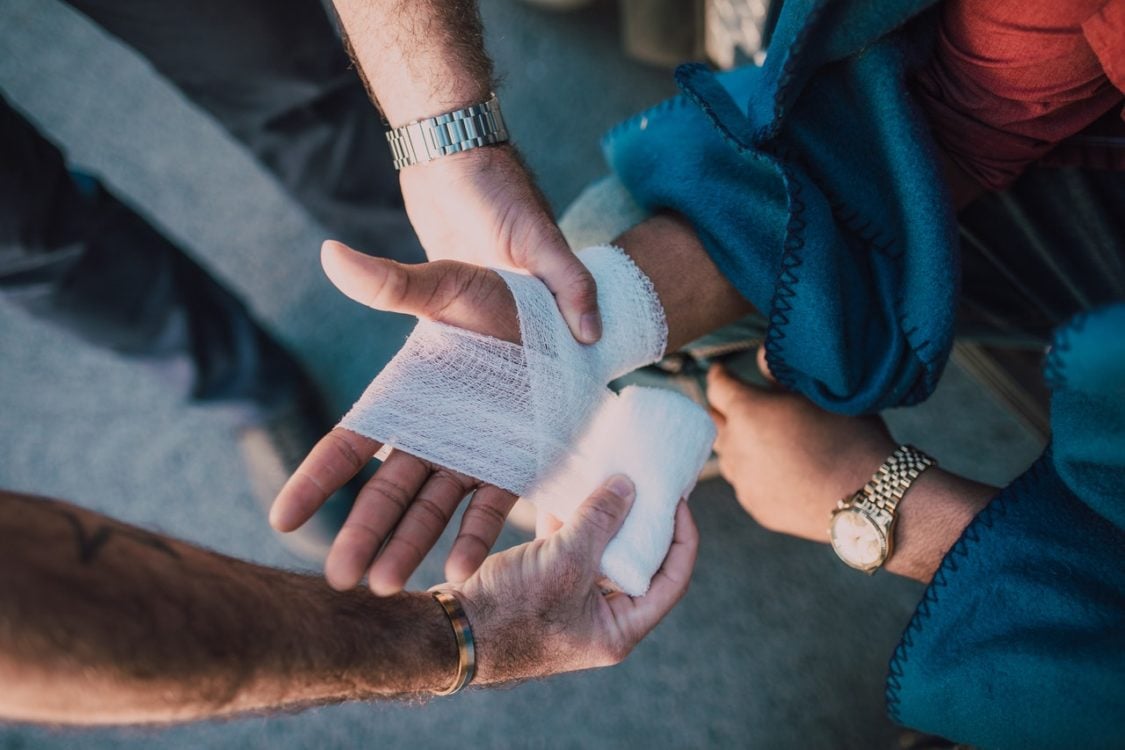Avoiding confrontation is the best way to keep the peace when you want to maintain a relationship more than you care about being right. This approach makes sense when you’re having a disagreement with a friend, but it’s not always the best approach in every situation.
If you don’t like confrontation, that’s understandable. However, it’s worth reconsidering your position when faced with the following situations.
1. You’ve been injured in a truck accident
After being injured by a commercial truck or semi-tractor trailer, you’re going to have extensive medical bills on top of physical pain. Depending on your injuries, you may need to take time off work, or you might not be able to return at all.
When the truck driver is at fault, it’s in your best interest to hold them accountable by filing a personal injury lawsuit. The consequences of letting this situation go are immense.
Unless you’re exceptionally rich, you won’t be able to pay your medical bills. While you’re off work, your household bills will pile up and you might be forced into bankruptcy.
Not wanting to deal with confrontation is understandable, but after a truck accident injury, the damage will be ongoing if you don’t seek compensation.
2. You’re being stalked
On social media, tons of people talk about “being stalked” by people who send them unwanted direct messages, but that’s not actually stalking. Being genuinely stalked is a frightening experience.
You can easily ignore unwanted messages. However, if someone is calling you, driving by your house, or following you around town, your life could be in danger.
No matter how much you want to believe your stalker is annoying, but ultimately harmless, don’t give them the benefit of the doubt. Most stalkers are attempting to gain control or create a sense of terror in their victims.
You don’t have to confront your stalker directly, but you should tell someone what’s happening. Make sure your friends and family know who’s stalking you so they can keep an eye out. Also, file a police report as quickly as possible. Your stalker won’t necessarily be arrested on the spot, but it’s wise to create a paper trail to establish a record.
3. Someone has threatened your life
Anytime another person threatens your life, take it seriously. You have no way to know if they’re being serious or just blowing off steam, and it’s not your responsibility to guess. If you don’t act on a threat to your life, that person might actually be planning to follow through.
The problem with threats is that most people brush them off and don’t take them seriously. Ignoring threats has enabled many people to carry out plans of murder, including mass shooters who often make threats that go ignored.
Don’t let it slide if someone threatens your life or threatens to hurt you in any way. Like a stalker, you don’t have to confront the person who made the threats directly. You can file a police report and be on alert for any further alarming behavior.
4. Someone is taking financial advantage of you
When someone is exploiting you for money, that’s a serious problem. It doesn’t matter if it’s a friend or a family member – your hard-earned money doesn’t belong to anyone you don’t want to share it with.
If you’re being financially exploited, stand up for yourself and don’t let anyone take advantage of you. If you have to confront someone you care about, you can do it in a polite, calm manner without being accusatory. However, don’t be soft. Just be direct.
For example, if you’ve been financially supporting someone sleeping on your couch for the last six months, give them a deadline for getting a job to contribute to the household. Once you give them a deadline, hold them to it and don’t make any exceptions. If they refuse to contribute financially, give them a formal eviction notice and file a lawsuit with the court if that’s what it takes.
If someone is taking advantage of you financially, they aren’t a true friend, and they aren’t someone you need in your life, so don’t worry about losing them. However, if you really care about the person and you want to support them, be tough now and support them once they’re no longer able to exploit you.
Avoiding confrontation can be a good a strategy
Ultimately, avoiding confrontation when you’re being taken advantage of is a bad idea. However, if you can escape harm by avoiding confrontation in the moment, then it can be a good strategy. The key is recognizing when it serves you and when it doesn’t.

